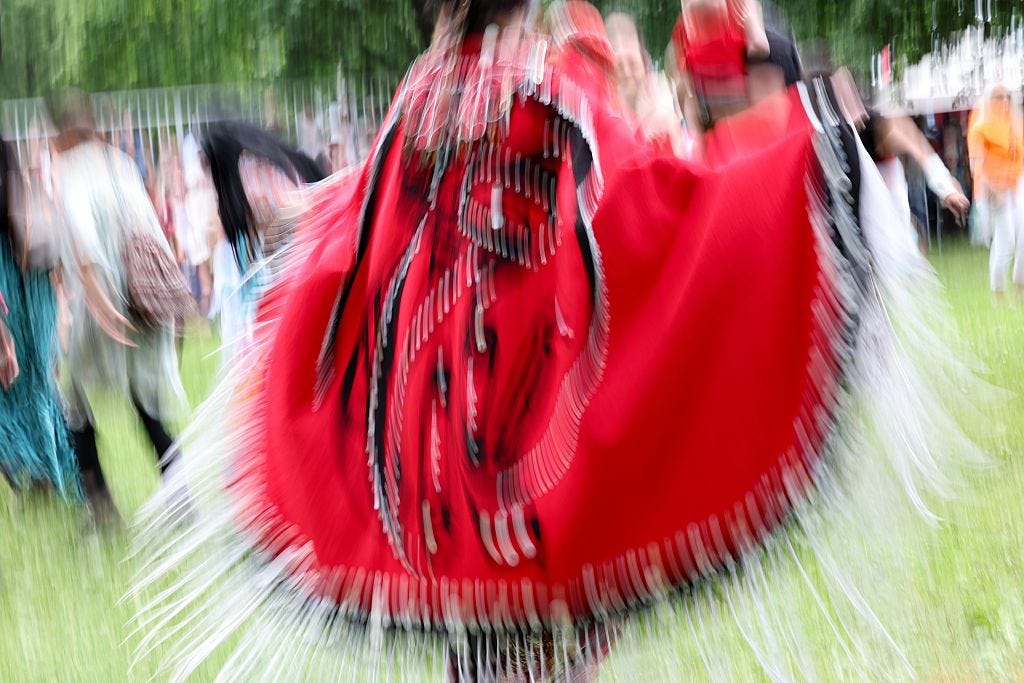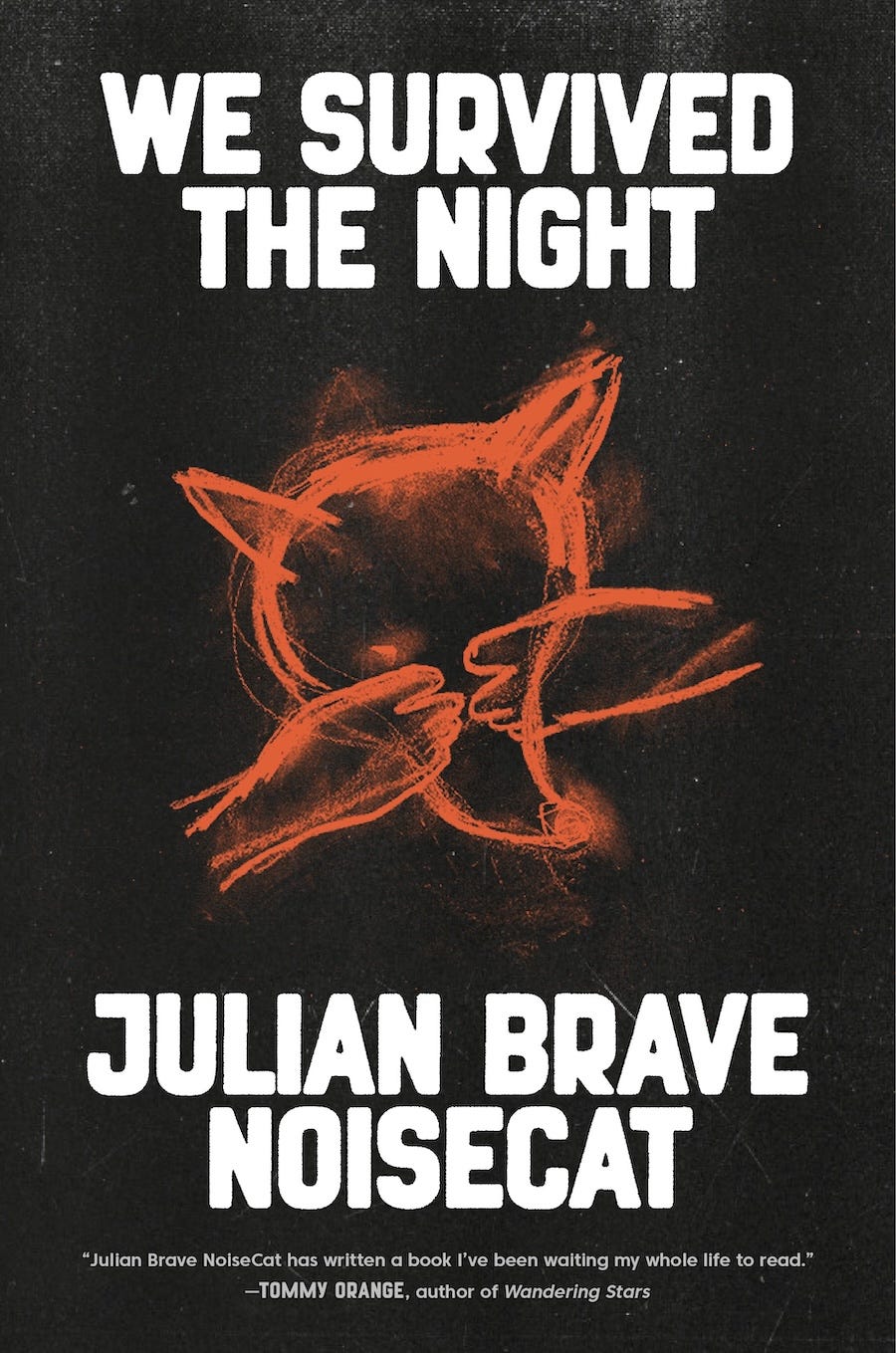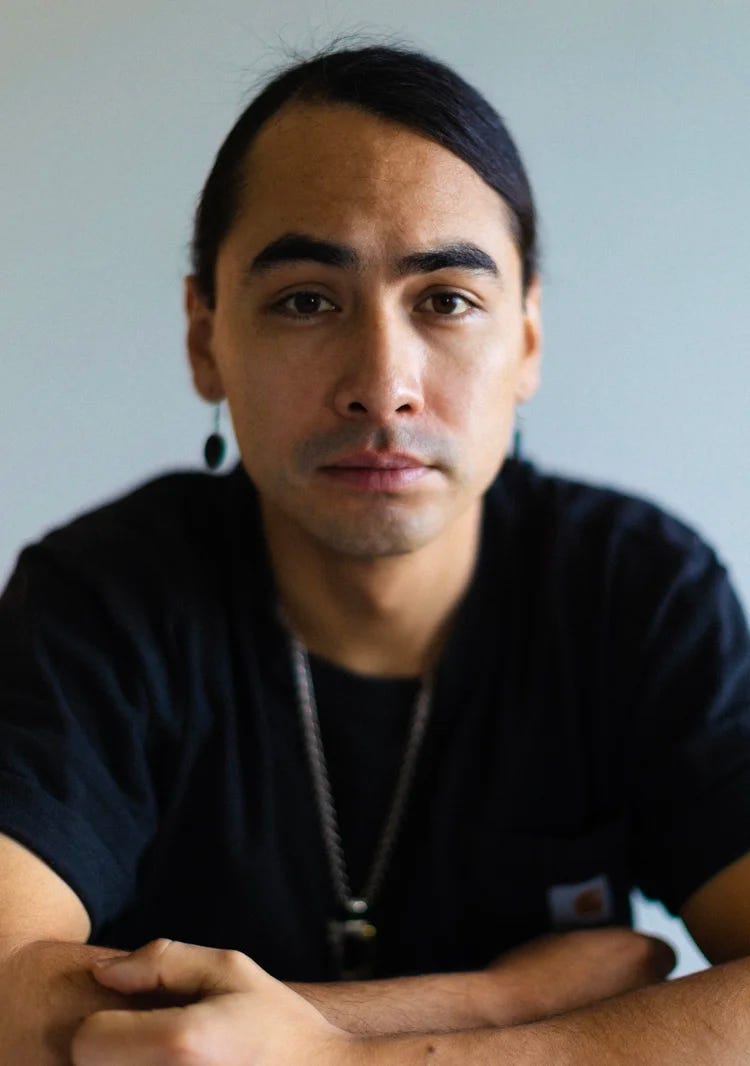BOOK CLUB: Storytelling his way to truth
Join us today as “We Survived the Night” author Julian Brave NoiseCat talks with us about his new book and shares his journey to reconnect with the past
In the first episode of the new six-part Ken Burns PBS documentary The American Revolution (which feels very much in conversation with We Survived the Night), we are reminded of the central role Indigenous people played in the creation of the United States. Native Americans fought alongside both the British and the American colonists, but crucially, Native nations modeled federalism and democracy. The Iroquois Confederacy, founded around the 12th century, was one of the oldest participatory democracies in history. Some of the delegates at the Constitutional Convention of 1787 were familiar with the Iroquois’ governmental system and drew inspiration from it.
But inspiration gave way to domination. Hungry for the vast lands Native Americans inhabited, the colonists — and then the new nation — took those lands by force and killed or relocated their inhabitants. In the 19th century, European settlers were paid for each Penobscot person they killed. Blankets from smallpox patients were distributed to Native Americans to spread disease among them. The U.S. government’s Indian Removal Act of 1830 authorized the forced removal of Native American tribes from their ancestral homelands in the Southeast to designated Indian Territory west of the Mississippi, an ordeal that killed so many from disease and starvation that the Cherokee referred to the event as the Trail of Tears. It’s not known exactly how many American Indians lost their lives between the 15th and 19th centuries, but the number is in the millions — some believe, even in the tens of millions. At the start of the 19th century, it is estimated that there were only 230,000 Native Americans left.
And policies to eradicate and erase their traditions and seize their land have continued; yet, as Julian Brave NoiseCat writes in We Survived the Night, “Of all the myths concocted by Western civilization and placed upon us like spells in the half millennium since contact, the myth of Indian death is the most powerful.”
As of the 2020 census, there are 9.7 million Native people living in the U.S., and 1.6 million in Canada. There are some twelve hundred individually designated Native nations between the two countries. And thanks to storytellers like Julian Brave NoiseCat, the language and traditions of ancient Native peoples are being researched, revived, and preserved.
But Noisecat’s project is as personal as it is historical, born of an aching need to reconnect with his father, and with his people. He traces that desire back to when he was around nine years old, and he was gifted an eight-part docuseries titled 500 Nations, about the history of Indigenous peoples in North America, by his mother’s then-boyfriend, Koko. He writes that “I nuzzled myself into the TV room under the stairs and watched those VHS tapes until they fell off their reels.” Koko then introduced him to the comedian Drew Lacapa, who, NoiseCat writes, “is still the only comedian to have incorporated a Coyote Story into his routine.” And thanks to his mother, he devoured the works of Sherman Alexie, beginning with The Toughest Indian in the World.
At age eleven, he writes: “I finally decided to powwow for real.” His dad carved him a dance staff out of wood. His mom began beading his regalia, and he danced in a procession with the Medicine Warriors. He designed T-shirts with the slogan “My heroes have never been cowboys. Always Indians.” He sang and prayed while participating in a sweat ceremony.
And, as NoiseCat writes, he began to see himself — and more:
I also see something greater and more collective: Indian men and Indian people. Not just who I am, but who we are. Somehow, by some magic I don’t understand, our stories, our way of life, and our way of looking at the world still echo through us.
Please join us today, Wednesday, November 19, at 12:30 p.m. Eastern, when we will ask Julian Brave NoiseCat to share more with us on what he learned in the course of writing We Survived the Night and making the documentary Sugarcane, and how Indigenous people are preserving and protecting their land and traditions.
And we congratulate our Ink Book Club alum Omar El Akkad on being a finalist for the National Book Award. We’ll find out tonight whether One Day, Everyone Will Have Always Been Against This wins this prestigious award, but in any event, it’s opened our minds and hearts! Kudos.
And below, for our Book Club members, we’ve got some questions of our own to get you thinking as you begin reading.
The Ink Book Club is open to all paid subscribers to The Ink. If you haven’t yet become part of our community, join today. And if you’re already a member, consider giving a gift or group subscription.





